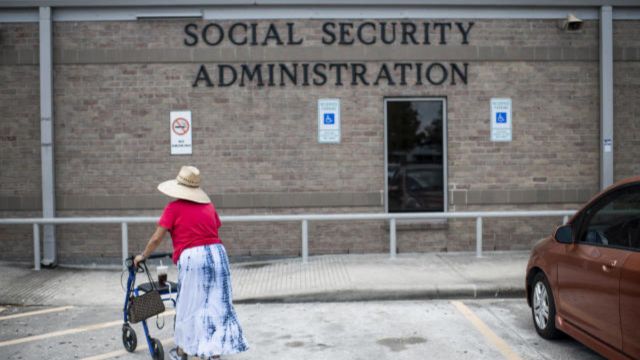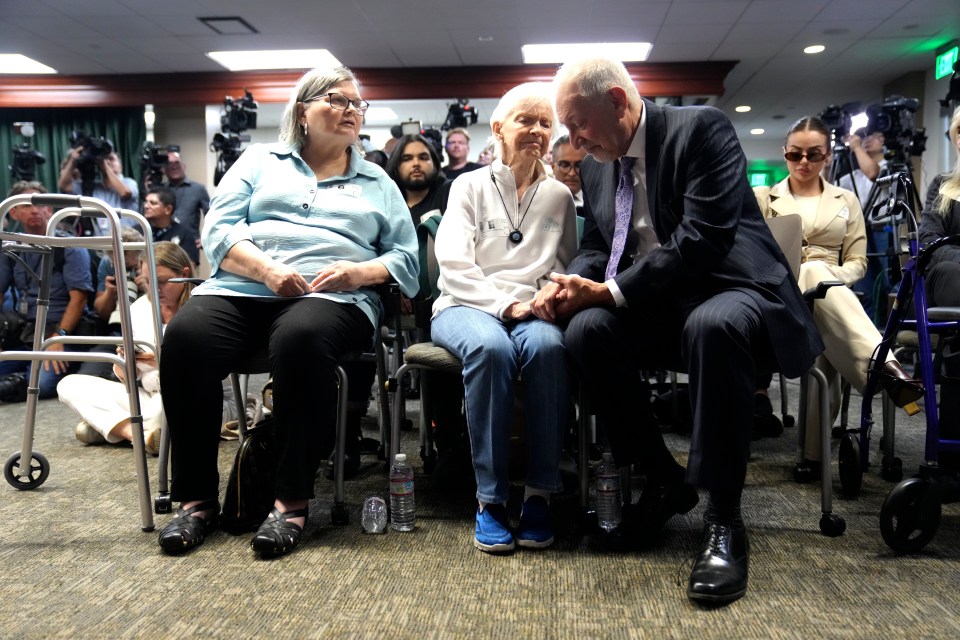New Updates! SSA Announces Removal of Food Assistance as Barrier to Benefit Access
Debarylife – A final rule from the Social Security Administration will stop some beneficiaries’ income from being reduced because of food assistance.
The adjustment affects Supplemental Security Income, or SSI, which pays monthly benefits to individuals and children 65 years of age and older who are blind, crippled, or have low to no income.
About 7.4 million Americans receive assistance from SSI alone or in addition to Social Security.
Food will no longer be taken into account for determining eligibility for benefits under the new law, which takes effect on September 30. These benefits are known as In-Kind Support and Maintenance, or ISM.
Important Points:
– As of September 30, food will no longer be taken into account when determining a person’s eligibility for Supplemental Security Income benefits.
– According to a disability advocate, SSI recipients will no longer need to be concerned that the groceries or meals they receive from friends or family may lower their monthly payments as a result of the adjustment.
– The Social Security Administration noted that this is the first of several improvements that it would be implementing for SSI applicants and beneficiaries.

Support in the form of food, housing, or both may currently be considered unearned income for SSI recipients, which could lower their payments or have an impact on their eligibility for benefits.
In the year 2024, the maximum federal SSI amounts for individuals are $943, couples are $1,415, and essential persons—those who reside with an SSI beneficiary and provide care—are $472.
SEE MORE: Kentucky GOP Passes Bill Limiting Democratic Governor’s Authority in Senate Vacancy Scenarios
In general, recipients of SSI must make less than $1,971 per month from their jobs to be eligible. Additionally, each individual or couple must have fewer than $2,000 in resources or $3,000 in total.
This usually refers to cash or other assets, like stocks, bonds, real estate, bank accounts, and so on, that can be converted into cash.
As a result of the new rule, SSI recipients won’t have to worry about their monthly benefits being reduced by groceries or meals they receive from friends or family, according to Darcy Milburn, director of Social Security and health care policy at The Arc. This nonprofit supports individuals with intellectual and developmental disabilities.
According to her, this will free up resources for the Social Security Administration, which would otherwise have to record each time a recipient received free food and reduce that beneficiary’s monthly income by up to a third.

“It represents a significant step to address one of the most complex, burdensome, and inhumane policies impacting people with disabilities that receive SSI,” Milburn stated.
The Social Security Administration noted that this is the first of several improvements that it would be implementing for SSI applicants and beneficiaries.
In a statement, Social Security Commissioner Martin O’Malley stated, “Simplifying our policies is a common-sense solution that reduces the burden on the public and agency staff and helps promote equity by removing barriers to accessing payments.”
The new rule might offer some respite to SSI recipients as rising inflation keeps increasing food and grocery costs for all Americans.
SEE MORE: David Rubenstein-Led Consortium’s Orioles Acquisition Receives MLB Approval
According to Thomas Foley, executive director of the National Disability Institute, “SSI recipients are among the most food insecure populations in the country.”
According to him, the new rule may also lead to fewer overpayments or underpayments of benefits, improving beneficiaries’ financial security.
A bipartisan initiative that would boost the asset restrictions for recipients to $10,000 for individuals (up from $2,000) and $20,000 for married couples (up from $3,000), could provide Congress the chance to make more significant changes to SSI.
“Disability affects everybody, so it’s a bipartisan issue,” Foley stated.
“Restricting asset limits to the $2,000 level impacts people’s ability to save and build a better financial future,” he stated.
Bank CEOs, such as Jamie Dimon of JPMorgan Chase, expressed support for modernizing SSI’s regulations during a December Senate hearing.
“We have employees who don’t want us to increase their salary because if it goes over a certain amount, they can’t get that benefit which they’re entitled to,” Dimon stated in December.
“This definitely should be fixed,” he stated.











